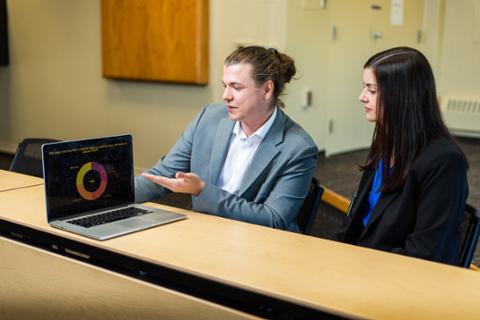Business Economics Minor

Dive into the complexities of today's global economy with our Business Economics minor.
Gain practical skills in data analysis and economic theory, preparing you for diverse career paths in finance, policy analysis, and business management.
Through a structured curriculum, students gain insight into how individuals, businesses, and governments make decisions in resource allocation and how these decisions impact local and global economies.
Unique class topics in the Business Economics minor:
- Issues in Today's Economy: Explore contemporary economic challenges and trends, analyzing their impact on markets, industries, and global economies.
- Principles of Microeconomics: Examine fundamental economic principles at the individual and firm level, including supply and demand, consumer behavior, and market structures.
- Principles of Macroeconomics: Study aggregate economic concepts such as national income, inflation, unemployment, and fiscal and monetary policies, to understand the functioning of economies at the national and global levels.
- Money and Banking: Investigate the role of money, financial institutions, and monetary policies in the economy, with a focus on banking operations, monetary theory, and policy tools.
- Sports Economics: Apply economic theories and methods to analyze issues in the sports industry, including player salaries, ticket pricing, stadium financing, and the economic impact of sports events on local economies.
- International Economics: Explore the principles of international trade and finance, including trade theories, exchange rate determination, balance of payments, and trade policy analysis.
- Econometrics: Learn quantitative methods and statistical techniques to analyze economic data, estimate economic relationships, and test economic theories using real-world data.
- Internship in Economics: Gain practical experience and apply economic principles in a professional setting through an internship, integrating classroom learning with hands-on work experience under the guidance of industry professionals.
Additional information
Catalog – see catalog for the College of Business